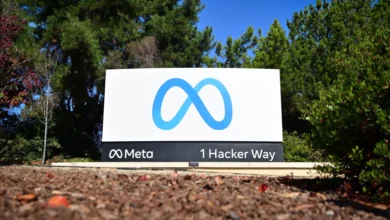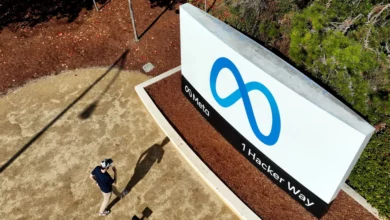Within the last decade, bearded preachers have appeared on satellite channels in increasing numbers to stress the need to revive Islamic virtues and protect Islam against the hegemony of Western values. For five years, these clerics have shaped the discourse of the so-called Salafi channels and enjoyed a relatively peaceful relationship with the government.
This, however, no longer appears to be the case.
Earlier this month, the government announced the suspension of 12 satellite channels, mostly with religious themes. It also issued warnings to 20 other channels concerning their alleged "incitement to religious hatred, unlicensed medical advice and obscenity."
"These corrective measures are intended to protect the Egyptian and Arab peoples from broadcasters determined to make calls for murder, degradation of religious groups, and the endangerment of people living with serious illnesses–all in pursuit of profit and extremist ideologies," Information Minister Anas al-Fiqi declared earlier this month.
Nevertheless, Salafi television hosts described al-Fiqi’s allegations as groundless, claiming that the new measures were likely the result of western pressure.
“These are vague accusations. Words like 'terrorism,' 'extremism' and 'violence' are very loose and lack precision. There is no evidence to prove this,” said Mostafa Alazhary, official spokesman for the Al-Nas Salafi satellite channel, which has been suspended for the last two weeks.
“I suspect this suspension came about due to foreign pressures,” added Alazhary, who had previously hosted a show called “Forgotten Tears” for the station.
Al-Nas (Arabic for “the people”) stands as one of the most popular Salafi television stations in Egypt. The Saudi-owned station was first launched in early 2006, but with completely different content. The channel initially featured an eclectic collection of shows, themes of which included music, dance and dream interpretation. Later, the channel underwent a radical change in outlook by embracing religious programming and inviting some of the most popular Salafi preachers to host its programs. At the time of suspension, the channel was broadcasting some 30 shows that attracted millions of Muslim viewers, according to Alazhary.
Al-Rahma TV is another prominent Salafi channel to have been banned this month. Founded in 2007 by highly influential Salafi cleric Mohamed Hassan, the channel attracted a wide audience that sought to learn how to live as true Muslims and overcome everyday vices.
The ban comes on the heels of sectarian feuds that made headlines in the local press this summer. The reported conversion of a priest’s wife to Islam and her alleged re-conversion to Christianity triggered one such dispute. Tensions escalated shortly afterward when a leading Coptic Church official challenged the authenticity of certain Koranic verses. The incidents provoked dozens of Salafi-led demonstrations against the Coptic Church.
“The government wants to convey the message that it is extinguishing all fires ahead of [November] parliamentary elections,” said Ashraf al-Sherif, political science professor at the American University in Cairo. “It wants to give the impression that it is combating extremism regardless of whether these channels actually played a role in the sectarian strife witnessed over the summer.”
"What's more, the government wants to deter Salafis from speaking about politics," he added.
“The government may have concluded that the Salafis had deviated from the agreement they made with it earlier," al-Sherif added. "Recently, they've been talking about official corruption and broaching political topics, especially since Mohamed Hassan issued his fatwa on the sales of antiquities.”
Salafi channels have traditionally been known for apolitical discourse that focuses only on Islamic principles. But in early October, Hassan surprised observers with a controversial fatwa granting people the right to sell any antiquities they might find on their property. His detractors claimed he was inciting people to violate the law.
Precise demographics for the viewership of Salafi television programs remain uncertain. In fact, there are no reliable statistics available on the size of the Salafi movement in general. Analysts, however, believe the movement wields considerable influence in Egyptian mosques.
“It's hard to say what the main features of their audience are since the data to track these things doesn't exist in Egypt the way it does in the US,” said Nathan Field, co-author of a study entitled “Salafi Satellite TV in Egypt,” which appeared last year in the semi-academic journal Arab Media and Society. “My guess is that viewers tend to be middle and working class, generally the people who are not the elites of Egyptian society. However, many Egyptians seem to be attracted to charismatic clerics like Mohammed Hassan.”
The recent bans on Salafi television channels represent only the latest episode in a more comprehensive crackdown in recent weeks that has targeted the private media in general. The crackdown kicked off with last month's suspension of the popular news talk show "Al-Qahira al-Youm" and continued with the sacking of Ibrahim Eissa, chief editor of independent daily Al-Dostour. Authorities soon after announced a ban on news alert cellphone text messages.
Many pundits have concluded that the new restrictions aim to silence Egypt's political opposition ahead of parliamentary elections set for next month.
“The suspension of Salafi channels is the dust that will cover up the upcoming heavy interference of the regime into the media,” said Hossam Tammam, an expert on Islamist groups.
“The ruling regime is approaching a decisive year that will determine its future. We will have the parliamentary elections followed by the presidential elections. It seems that the regime will not allow the same level of freedom it allowed during 2005 elections,” added Tamam.
The regime chose to begin by Salafi channels because the political cost of their suspension is quite negligible, explained Tamam.
“Salafi channels were the prime victims because they have serious flaws and dangerous implications on the society. We sensed this danger during the recent sectarian sedition,” he said.
According to al-Sherif, pleas by Salafi preachers to lift the ban will not fall on deaf ears.
“The government will not give up these channels," he said. "It will bring them back so they can serve as counterweights to the Muslim Brotherhood."
According to al-Sherif, the ruling regime has allowed Egypt's Salafi movement to persist in order to foster an apolitical version of Islam that could offset the model endorsed by the highly political Muslim Brotherhood.
“The Salafi movement is capable of influencing people’s minds," he said. "But this influence isn't politically dangerous since Salafis don't call for political activities."
The new restrictions have outraged Salafi clerics and prompted protests in Alexandria, a Salafi stronghold. One of the first responses to the restrictions came from prominent scholar Mohamed Hussein Yacoub.
“My heart is filled with sorrow and grief tonight,” said Yacoub in a televised speech posted on his website. “Muslims will lose a lot if these virtuous channels…remain closed,” he said. Yacoub implored authorities not to “deprive Muslims of the blessings of learning their religion and becoming closer to God.”
Tamam contended that owners of Salafi channels will eventually revisit their programs in order to survive in the market.
“At the end of the day, these channels are for business,” said Tamam. If investors find that the Salafi discourse will lead to drastic losses, they will change their channels.”
In recent decades, the term "Salafi" has been used to label groups and scholars that advocate the Hanbali legalistic tradition of Islam. The Wahhabi movement, which emerged in the 18th century in the Arabian peninsula, stands out as the earliest precursor of the Salafi tradition as seen today in the region.
“The Salafi channels have a narrow scope; they only focus on rituals and formalistic issues," said al-Sherif. "They aren't concerned with the question of how to integrate Islam into public life."
In an effort to convince the government to lift the suspension, Al-Nas TV has decided to diversify its content and reduce the number of programs devoted to religious topics.
“We're not going to change our outlook, but we will present religion in other forms,” said Alazhary, asserting that preaching and religious themes would now account for much less of the channel’s content.
“We were already thinking about making changes before they suspended the channel, but we didn't have time,” added Alazhary, whose channel was forced to lay off 80 percent of its 200 workers–and lost hundreds of thousands of Egyptian pounds–as a result of the ban.
“We haven't received any specific promises, but we've been assured that the channel would soon be allowed back," he said. "We just don't know when exactly."




